Abstract
Patients have a right to refuse medical treatment. But what should happen after a patient has refused recommended treatment? In many cases, patients receive alternative forms of treatment. These forms of care may be less cost-effective. Does respect for autonomy extend to providing these alternatives? How for does justice constrain autonomy? I begin by providing three arguments that such alternatives should not be offered to those who refuse treatment. I argue that the best argument which refusers can appeal to is based on the egalitarian principle of equality of outcome. However, this principle does not ultimately support a right to less cost-effective alternatives. I focus on Jehovah's Witnesses refusing blood and requesting alternative treatments. However, the point applies to many patients who refuse cost-effective medical care.
Full text
PDF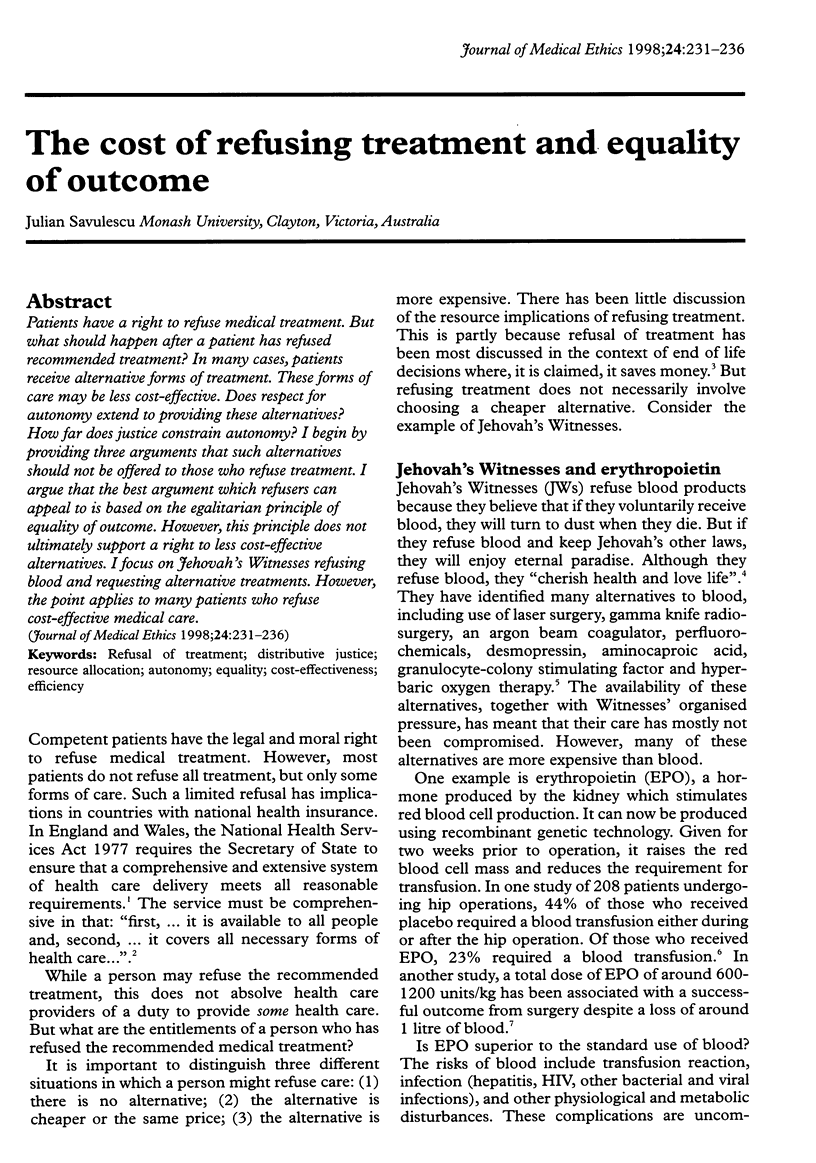
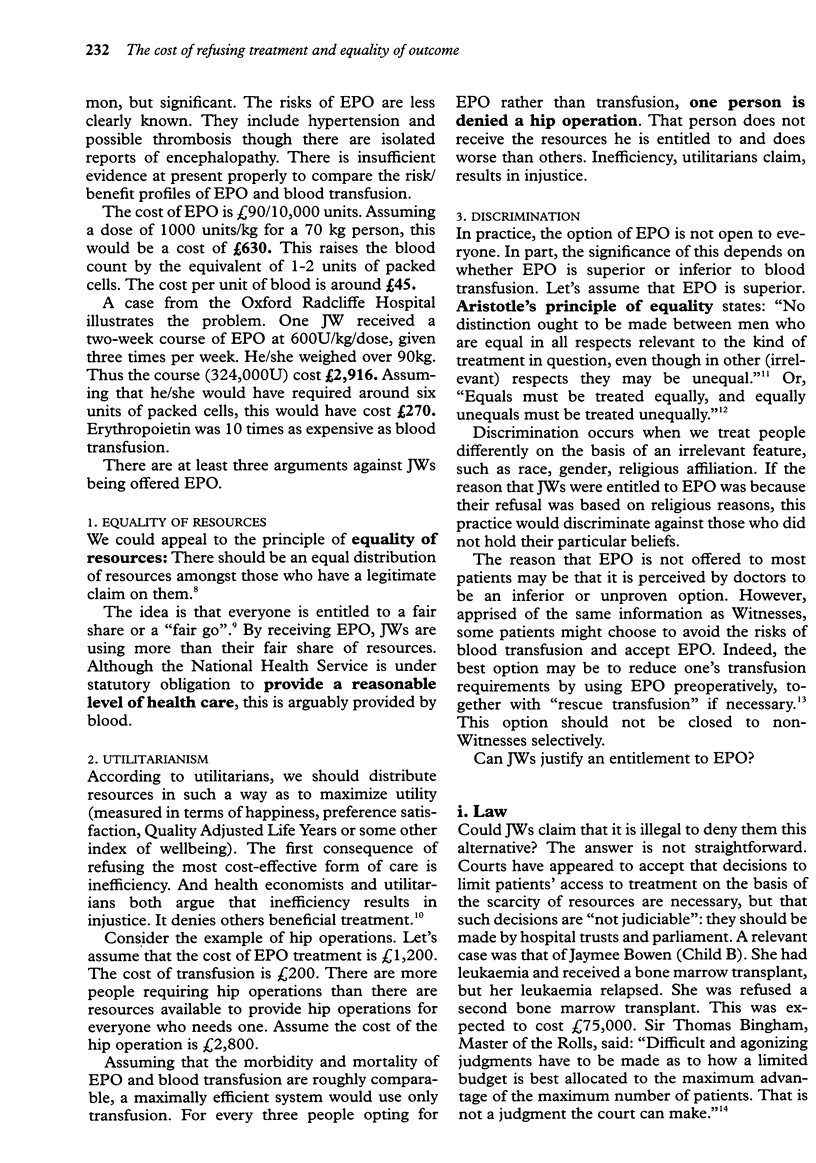
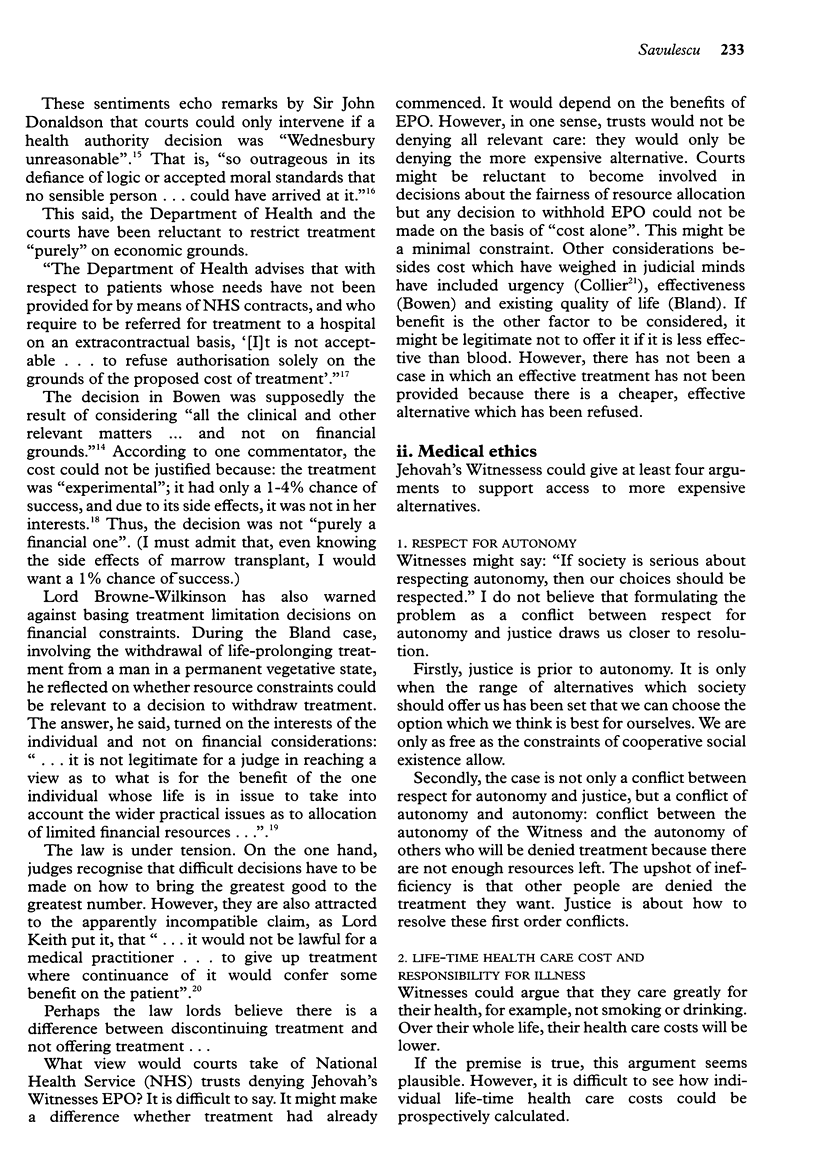
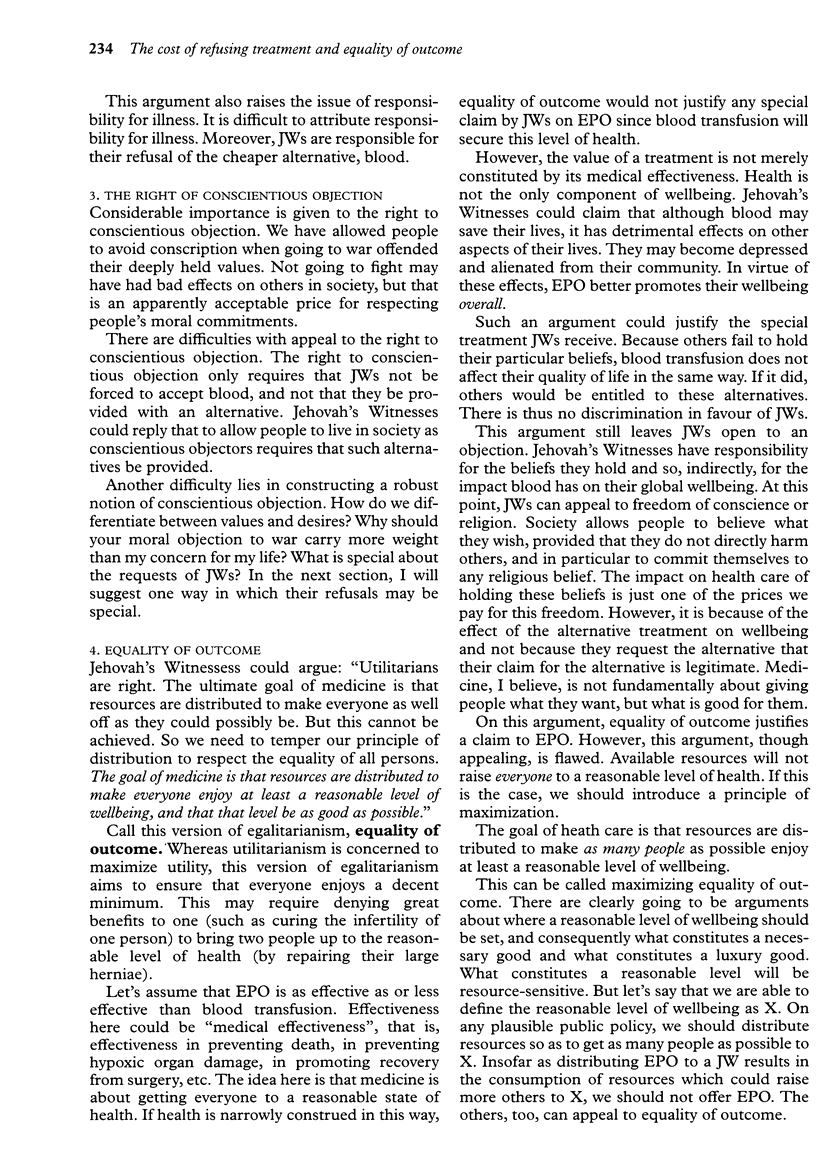
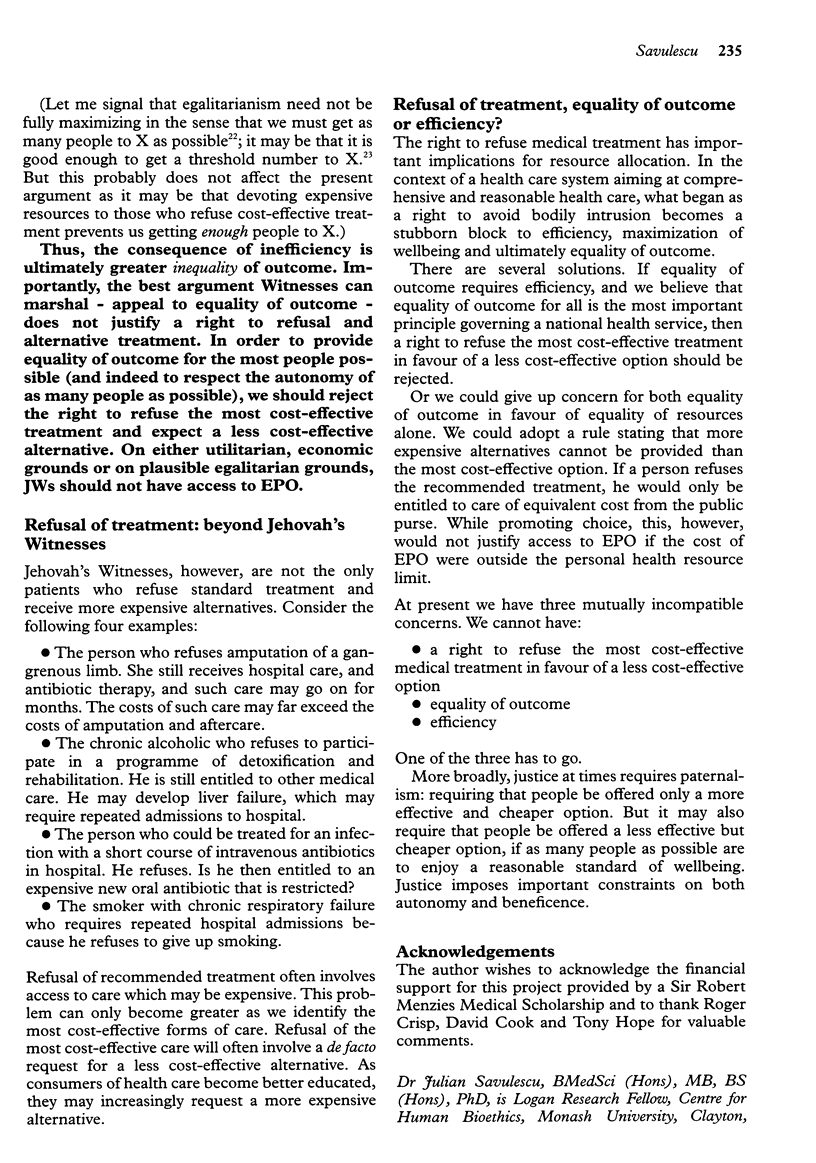
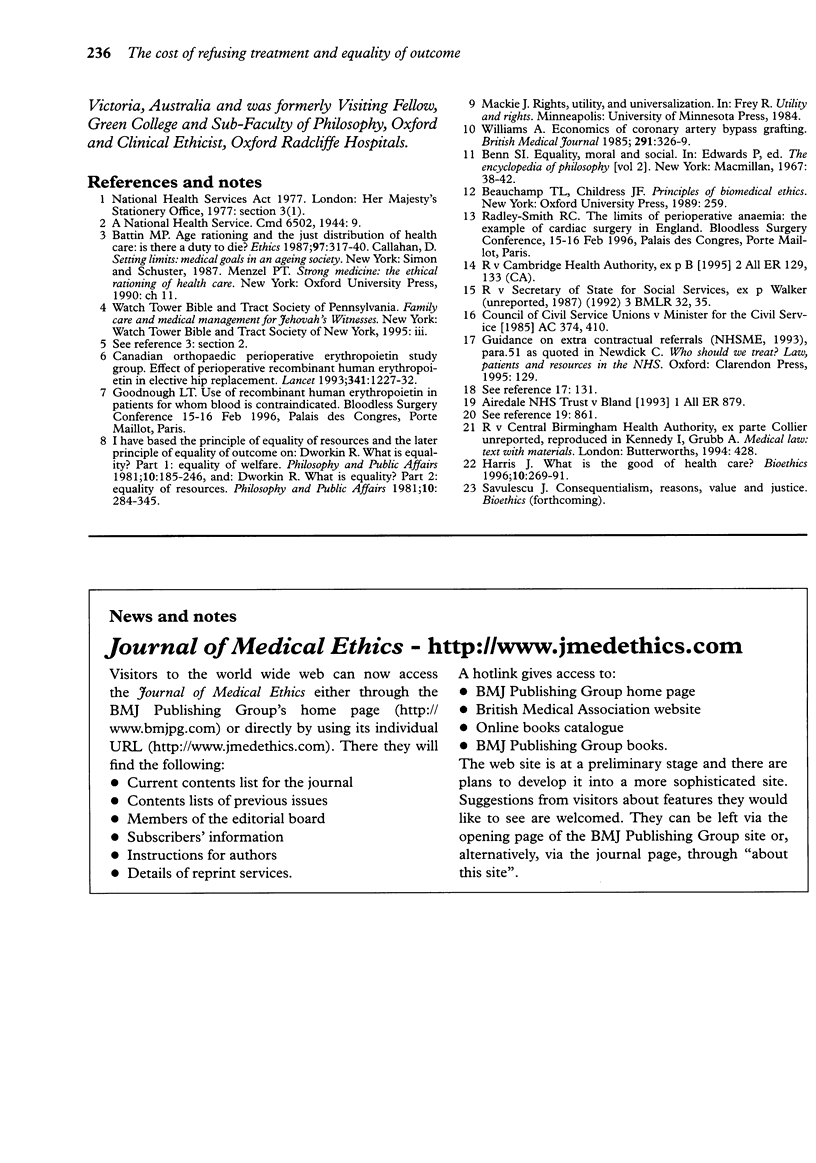
Selected References
These references are in PubMed. This may not be the complete list of references from this article.
- Battin Margaret Pabst. Age rationing and the just distribution of health care: is there a duty to die? Ethics. 1987 Jan;97(2):317–340. doi: 10.1086/292841. [DOI] [PubMed] [Google Scholar]
- Harris John. What is the good of health care? Bioethics. 1996 Oct;10(4):269–291. doi: 10.1111/j.1467-8519.1996.tb00129.x. [DOI] [PubMed] [Google Scholar]
- Williams A. Economics of coronary artery bypass grafting. Br Med J (Clin Res Ed) 1985 Aug 3;291(6491):326–329. doi: 10.1136/bmj.291.6491.326. [DOI] [PMC free article] [PubMed] [Google Scholar]


